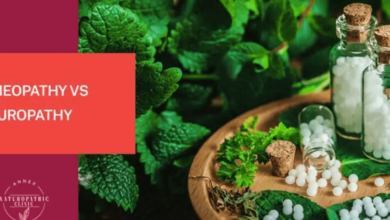Homeopathy: German Term for Homeopathy

Homeopathy, or “Homöopathie” as it is known in German, traces its origins to the revolutionary ideas of Samuel Hahnemann in the late 18th century. This system of medicine is founded on principles that advocate for the use of highly diluted substances to trigger the body’s self-healing mechanisms. As homeopathy evolved, it not only garnered attention within Germany but also permeated global health discussions, raising questions about its efficacy and integration into contemporary medical practices. What complexities lie within its historical and modern context that warrant further exploration?
Historical Roots of Homeopathy
The historical roots of homeopathy can be traced back to the late 18th century, when Samuel Hahnemann, a German physician, first articulated its foundational principles.
Hahnemann’s discoveries emerged as a response to the limitations of 18th century medicine, favoring a more holistic approach to healing.
His innovative ideas offered individuals a pathway to reclaim their health through natural, gentle remedies, fostering a sense of empowerment and freedom.
Principles of Homeopathy
Homeopathy is grounded in several key principles that distinguish it from conventional medical practices.
Central to this approach is remedy selection, where practitioners carefully match symptoms with specific remedies.
Additionally, potency levels are meticulously considered to enhance healing effects while minimizing side effects.
This holistic framework empowers individuals, fostering a deeper connection to their health and promoting natural healing pathways.
Also read: Homeopathy: French Term for Homeopathy
Global Impact of Homöopathie
Across the globe, the practice of homeopathy has made significant inroads into healthcare systems, offering a unique perspective on wellness and healing.
Its global accessibility allows individuals from diverse cultural backgrounds to explore alternative treatments that resonate with their beliefs.
Modern Applications and Practices
Modern applications of homeopathy reflect a growing integration of holistic practices within contemporary healthcare.
Increasingly, clinical trials are being conducted to evaluate homeopathic remedies alongside conventional treatments.
Patient experiences highlight the personalized nature of homeopathy, providing an empowering choice for those seeking alternatives.
This approach fosters a deeper connection between individuals and their health, promoting well-being through understanding and compassionate care.
Also read: Homeopathy Explained: Homeopathy Explained: Principles and Practice
Conclusion
Homeopathy, harmonizing history and holistic healing, holds significant sway in the spectrum of alternative medicine. By prioritizing personalized care and promoting the power of natural remedies, homeopathy fosters a profound connection between individuals and their health journeys. This enduring discipline, rooted in the principles of self-healing, continues to inspire innovation and integration within modern healthcare systems. Ultimately, the enduring essence of homeopathy emphasizes the importance of individualized approaches in the pursuit of wellness and vitality.





